Together we strive to improve treatment, quality of life and survival for patients with blood cancer
The recipe is excellent translational research, where strong collaborations between researchers at universities and clinicians at hospitals create the foundation for new insights, innovation, and implementation in clinical practice with direct value and impact on patient care.
Professor and CAG Chair, Kirsten Grønbæk and Professor and CAG Vice-Chair Krister Wennerberg started CAG HEMATOLOGY in 2017. The CAG aims to improve the treatment, quality of life and survival for patients with blood cancer.
CAG HEMATOLOGY identifies and target blood cancer stem cells in many ways, by repurposing existing drugs and through comprehensive drug screening to identify the specific target to improve treatment for the individual patient, also called precision medicine.
What is precision medicine?
Precision medicine is an approach for disease treatment and prevention that considers individual variability in genes, environment, and lifestyle to more precisely target the cancer of the individual patient. It allows researchers and healthcare professionals to predict more accurately which treatment and prevention strategies for a particular disease will work in which groups of patients.
Watch out for the European Hematology Association’s Topics-in-Focus program, which arranges meetings and preceptorships: https://ehaweb.org/topics-in-focus/precision-hematology/.
If you want to learn more about precision medicine in general sign up for this free course:
https://www.coursera.org/learn/personalised-medicine-from-a-nordic-perspective.
You can also enroll for this Master at the University of Copenhagen: https://efteruddannelse.ku.dk/master-i-personlig-medicin.
The importance of excellent research and strong collaboration
Through excellent translational research collaborations, CAG HEMATOLOGY is performing research that have immediate impact on how blood cancer patients are treated today, that improve understanding of genetics, epigenetic and molecular mechanisms leading to blood cancers, that validate and suggest new validated targets for the development of anti-cancer therapy, that strenghten both the short- and long-term research and clinical management of blood cancer, and that strengthen collaborations with the pharma industry to develop new drugs for the treatment of blood cancer.
The CAG HEMATOLOGY has established a biobank with high quality blood- and bone marrow samples from more than 2,500 patients and a comprehensive clinical database. This means that the findings of the basic researchers in cell lines and mouse studies can be tested on patients’ cells directly. Through advanced drug screening the patient cells are exposed to up to 400 different drugs, and will show the effect directly on the patients’ own cells.
CAG HEMATOLOGY is moving forward with a number of national and international clinical trials in both cancer prevention and treatment, that repurpose old and test new drugs based on the individual patients’ cancer targets.
The CAG is also actively engaged in testing the preclinical efficacy in hematological cancers, including AML, of emerging drugs such as antibody-drug conjugates targeting uPARAP.
Implementation in clinical practice – how does it work?
All research performed by CAG HEMATOLOGY is inspired by a clinical problem and an unmet need in the clinic. This ensures a high degree of relevance, and that implementation of results is an integrated part of the research. With this in mind CAG HEMATOLOGY has identified biomarkers (CHIP = somatic mutations in myeloid related genes in the patient’s apparently healthy stem cells). CAG HEMATOLOGY observed that a subgroup of CHIP with DNA repair mutations, indicate whether the patient can tolerate high-dose chemotherapy.
“Our research is likely to aid clinical decision-making regarding lymphoma treatment in the elderly in terms of choosing the right treatment for individual patients and avoiding toxicity”, says Professor Kirsten Grønbæk.
With this study, CAG HEMATOLOGY thus contributes to decision-making, guiding which elderly patients will benefit from standard treatment, which should be offered the new biological treatment or, alternatively, will do best without treatment.
In a Phase 2 cancer interception trial CAG HEMATOLOGY observed that high dose oral vitamin C is particularly effective in patients with intact TET2, the specific target of vitamin C.
Professor Kirsten Grønbæk says: “It is very exciting that we, for the first time, now have indications that we may be able to prevent or postpone myeloid cancers by early intervention. A result we will pursue in a phase 3 study before implementation in the general population of CHIP carriers.”
In two other international clinical trials, also initiated by CAG HEMATOLOGY, they combine dose reduction trials with precision medicine targeting the UBA1 gene in the newly discovered VEXAS syndrome and BCL2 in AML treatment (LD-VenEX trial), respectively.
CAG HEMATOLOGY has a constant focus on implementation, but is obviously aware of the importance of this type of research being tested in clinical trials to obtain strong evidence before clinical implementation.
The CAG HEMATOLOGY Team
CAG HEMATOLOGY consists of CAG Chair, Professor Kirsten Grønbæk, Rigshospitalet and CAG Vice-Chair, Professor Krister Wennerberg, University of Copenhagen.
Two CAG Junior Chairs, Associate Professor Sunil Kumar Saini, DTU and PhD Jakob Werner Hansen, Rigshospitalet.
Alongside 8 CAG Keymembers from across the Capital Region of Denmark, Region Zealand, University of Copenhagen and DTU.








